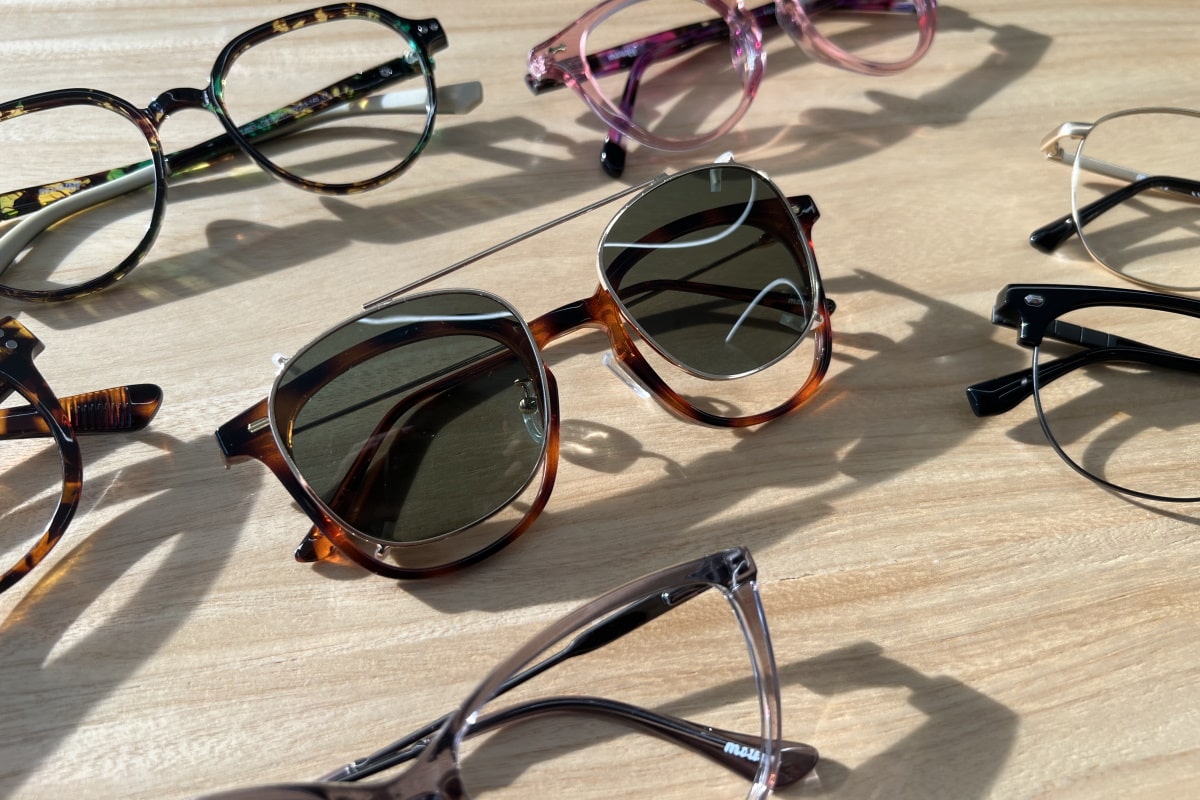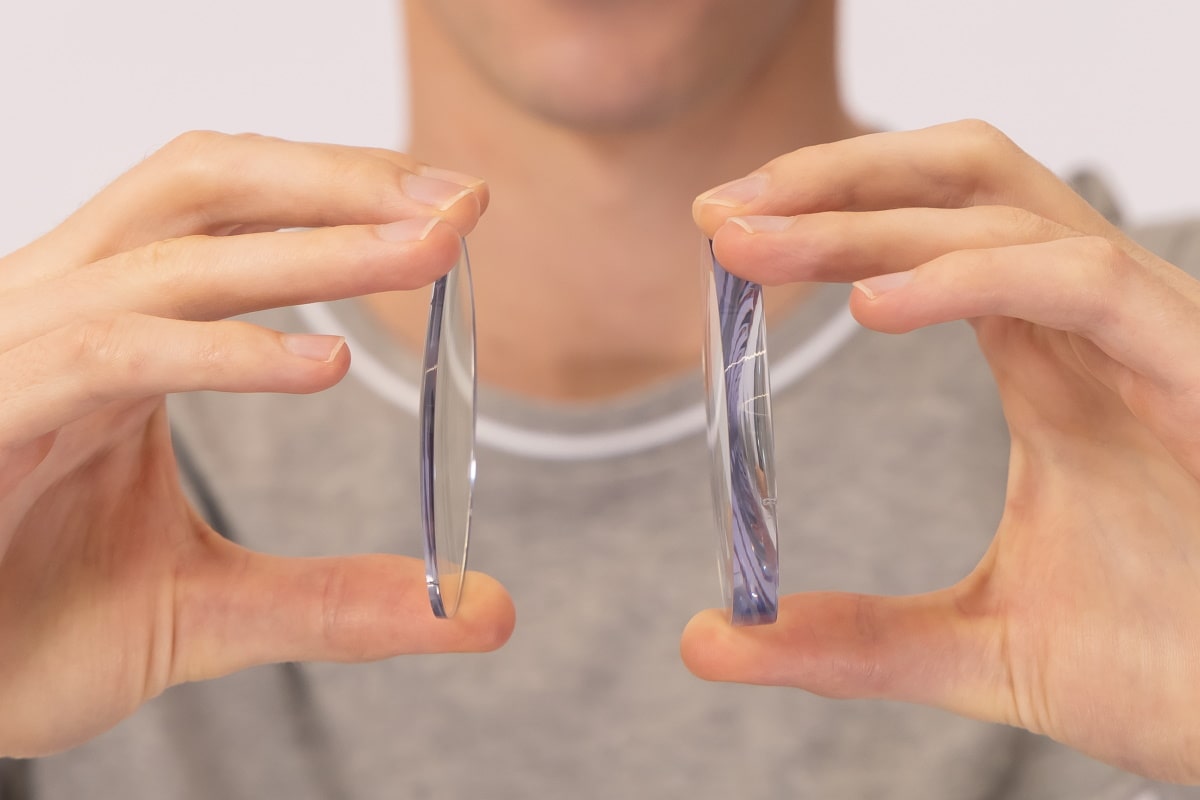Headaches? Here’s What Can Happen if You Don’t Wear Your Glasses
If you’ve been prescribed glasses by an optometrist, it’s important to wear them as prescribed. Not wearing your glasses can lead to a number of problems, like headaches, eye fatigue, and a poorer quality of life.
Are you a glasses-wearer who gets headaches when you forget to don your frames? If so, this article is for you! In the next few minutes, you’ll learn about the unfortunate side effects of not wearing your glasses as prescribed, and we’ll give you a few tips & tricks for keeping your eyes healthy.
Let’s get started!
So, what really happens when you don’t wear your prescription glasses?
If you don’t wear your prescription glasses, it’s not just headaches you’ll be worried about. A few other nasty side effects can come into play, such as:
1. Headaches, squinting, and feeling fatigued
Not wearing your prescription glasses leads to squinting, headaches, and fatigue. As you squint, you contract a number of muscles around the eye and face. Over time, prolonged tensing of these muscles cause head pain, fatigue, and stress.
2. Blurry or double vision
Without your prescription lenses or glasses, you may notice the images on your screen getting blurry. This is because the light is entering directly into your eye without bending through the corrective lenses, a vital detail that blurs your vision.
In saying that, blurry or double vision could also be a sign of other issues such as diabetes, high blood pressure, or eye disease. You should discuss any blurriness with your optometrist if it persists.
3. Heightened chance of injury
Struggling to walk properly without your glasses is something you’ve probably experienced more than once, especially if you’re prone to losing your frames. You are far more likely to injure yourself when not wearing your prescription glasses – after all, it’s hard to avoid tripping on small objects if you can’t see them in the first place.
Something else to note is that driving becomes far more dangerous when you aren’t wearing glasses. Considering how hard it is to drive in the first place, having blurry vision only increases your chance of injury on the road.
4. Your eyes may not develop completely
The clearer the image your eye receives, the easier and more effective it is to focus on an object. Neglecting to wear your prescription glasses leads to a blurry, difficult-to-see picture – and if you’re growing, this can stunt your ability to focus and general eye development later on in life.
What do glasses have to do with headaches, anyway?
You might be wondering why not wearing your glasses can lead to brain-splitting headaches. As it turns out, there are a few different reasons:
1. Eye strain
More often than not, glasses-related headaches are caused by eye strain. This happens when the focusing power of the lens in your eye isn’t coordinated with your cornea and so makes it harder to see clearly. The strain manifests as headaches, strain, and poor vision.
2. Astigmatism
If your headache can’t be traced back to eye strain, another possibility is astigmatism. People that suffer from astigmatism have irregularly shaped corneas (the front surface of your eye). This can lead to blurry objects or double vision, and it’s exacerbated when you don’t wear your corrective lenses.
3. Hyperopia
Hyperopia is the medical term for farsightedness. Far-sighted people see things clearly at a distance, but up close, everything appears blurry. If you have hyperopia, you’re likely to experience headaches when not wearing your glasses. Hyperopia occurs because the eyeball may be too short or the cornea has too little curvature. Without assistance, your eyes must work harder, and the resulting eye strain can lead to headaches.
The simple answer? Wear your glasses as often as you possibly can! People with hyperopia don’t typically experience strain or pain if they have their corrective lenses on.
4. Myopia
The opposite of hyperopia is myopia, which refers to people who have trouble seeing objects at a distance. People who have myopia get headaches without their glasses on because the light bends incorrectly, so images are focused in front of the retina instead of on the retina itself. Eye strain is almost inevitable in this case without your glasses.
Experiencing headaches with your glasses on? Here’s why
When you go to the effort of wearing your glasses as much as possible, it’s frustrating when your head begins to throb with that familiar ache. Don’t fret – there are several explanations as to why this might be happening.
- Muscle strainSometimes the muscles in your eyes and face become worn out when you wear glasses. It can take time for your eyes to adjust to new glasses or a new prescription. If you don’t adjust properly, the muscles in your face can feel strained, leading to headaches or even blurred vision.
- Multiple lens powerPeople who wear bifocals or multifocal lenses can get headaches from having multiple prescriptions in one lens. If that’s the case, your brain just needs some time to adjust and learn how to process the new info. Unfortunately, the result of all that extra effort can manifest as a headache, but the symptoms will pass with time.
- Poorly fitted framesIf your glasses aren’t sitting comfortably on your face, the misalignment can lead to headaches or even dizziness. Tightness around your ears and nose can cause discomfort and hurt your skin. If your frames don’t feel perfectly snug, check out our guide to adjusting your glasses.
- Wrong prescriptionHeadaches can also be a telltale sign that you have been given the wrong prescription lenses. This is especially common for people who have had more than one eye exam and received new prescriptions from different optometrists. Your symptoms could all come down to a simple error.
In order to fix your faulty prescription, it’s best to discuss the issue with your optometrist so that they can give you a proper diagnosis.
Will your eyesight suffer if you ditch your frames?
Glasses help you see the world more clearly, and they certainly make your life easier. That’s why it is always recommended to wear your glasses as much as you possibly can.
Not wearing glasses doesn’t technically make your eyes worse, but your eyes have to work much harder in order to see clearly. If that’s not enough incentive, headaches and blurred vision will be a recurring theme if you don’t wear your glasses.
Not wearing glasses when you have nearsightedness
If you have nearsightedness and don’t wear your glasses, you may experience:
- Blurry vision when looking at distant objectsWhen people with nearsightedness don’t wear their glasses, they may experience headaches due to the strain on their eyes from not focusing on distant objects correctly.
- The need to squint or partially close the eyelids to see clearlyWithout glasses, near-sighted people will need to squint or partially close their eyelids in order to see clearly, which can lead to eye exhaustion and headaches.
- Difficulty seeing while driving a vehicle, especially at night (Night Myopia)Driving at night can be quite the challenge if you don’t wear your glasses. In the best-case scenario, your limited sight could make it difficult to see signs and follow directions. In the worst case, you could cause a serious accident.
What about people with farsightedness?
- Crossed eyes or eyes going out of alignment for childrenIf you don’t wear your glasses while looking at nearby objects like your computer screen or books, your eyes might go out of alignment. Kids are especially prone to this.
- Impaired safetyWhen driving, your lack of glasses may make you lose control of the vehicle – and in that case, it’s not just your own safety you are putting in jeopardy. Glasses are especially important when on the road.
What’s stopping you from wearing your glasses?
It’s clearly important to wear your glasses as often as possible. So why don’t you? Here are a few reasons people often cite for why they neglect their eyewear.
1. Discomfort
If your frames aren’t fitting well, take things up with your optometrist so that they can give you a properly fitted pair of glasses.
2. Fashion flop
You might be worried about how your glasses affect your appearance. Don’t be afraid to spend some time browsing the different frames until you find the perfect shape for your face.
3. Foggy lenses
For glasses wearers, fogged-up lenses can be incredibly frustrating. Temperature and humidity changes can ruin your clear vision, but it’s worthwhile to simply wipe them off as needed and continue wearing them.
4. Glare from lights
If you live or work in a sunny place, glare can be both annoying and distracting. You can combat this by choosing lenses that are slightly tinted or adding a special coating that reduces glare.
Mouqy has a wide selection of eyeglasses and sunglasses that are anti-glare, anti-scratch, and anti-reflective. You should be able to find the perfect pair to suit your lifestyle and needs.
Wrap up
Wearing glasses can improve your vision and reduce the risk of accidents. The extra effort is worthwhile to choose a pair that suits your lifestyle perfectly. Once you’ve found them, never let them go! Your eyes will thank you for it.

Written by:
Nick Saraev

Reviewed by:
Dr. Melody Huang












